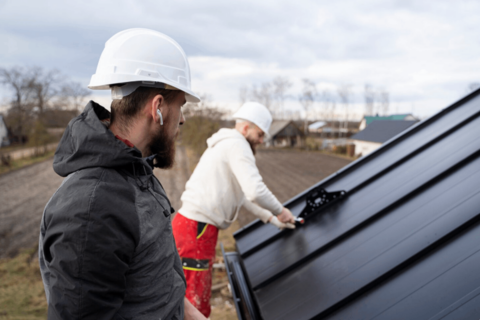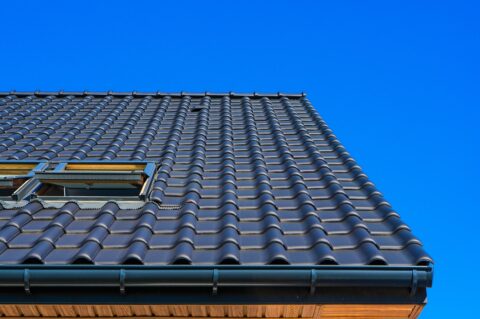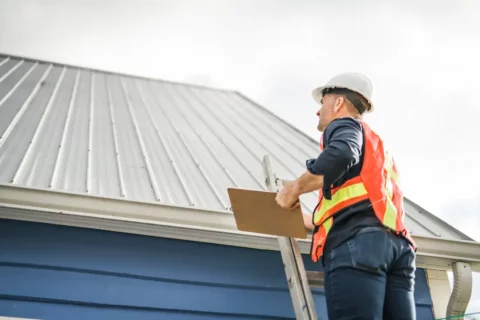
How to Choose the Right Roofing Material for Colorado Homes
Colorado’s diverse climate creates a unique challenge for homeowners in selecting suitable roofing material. From severe sun exposure to torrential snow, hailstorms, and significant temperature variations, in the summer, your roof gets hit hard throughout the year.
Being one of the best Denver roofing companies, 303 Roofer knows that selecting roofing material should be based on beauty, protection from elements, durability, and cost-effectiveness. This guide will walk you through the most suitable Colorado homes, what elements they should include, and how you can choose an expert Denver roofer with their assistance.
Why Material Choice Matters in Colorado
A roof in Denver doesn’t just need to be sturdy; it has to be smartly chosen based on several key environmental and structural factors:
- Hail and wind resistance: Colorado has one of the highest rates of hailstorms in the country, so protection against those disasters is a must.
- Snow load and ice dams: Roofs must carry heavy snow and retard melt/refreeze cycles.
- UV exposure: Elevation increases ultraviolet radiation exposure, which can break down materials faster.
- Temperature extremes: Materials must endure between big swings from hot to cold, often in a single day.
Here’s a summary of the most popular roofing types and their performance.
1. Asphalt Shingles
Best for: Budget-conscious homeowners who want versatility and a relatively quick installation.
Pros
- Affordable upfront cost
- Widely available
- Moderate durability (15–30 years)
- Available in hail-resistant (Class 4) options
Cons
- Shorter lifespan compared to other materials
- Can warp or crack under extreme temperature swings
Denver Consideration: Look for impact-rated UL 2218 Class 4 certified shingles. These are more resistant to hail damage, which is crucial in the Front Range region. Some insurance providers offer premium discounts for Class 4-rated roofs.

2. Metal Roofing
Best for: Homeowners looking for longevity and maximum weather resistance.
Pros
- Extremely durable (40–70 years)
- Excellent snow and ice shedding
- Fire-resistant
- Reflects heat, lowering cooling costs
Cons
- Higher upfront cost
- Can be noisy during rain or hail without proper insulation
- May dent from large hail (though high-gauge panels resist this better
Denver Consideration: A standing seam metal roof is well-suited to Colorado’s snow. It allows snow to slide off easily, reducing the risk of ice dams and snow buildup.
3. Concrete and Clay Tiles
Best for: Homes with a southwestern or Mediterranean design aesthetic.
Pros
- Long-lasting (50–100 years)
- Excellent fire resistance
- Withstands UV exposure
Cons
- Very heavy (may require additional structural support)
- Brittle and prone to cracking under freeze-thaw cycles or hail
- Expensive installation and repair
Denver Consideration: If considering tiles, choose concrete over clay, as they tend to hold up better in freeze-thaw environments. Also, ensure your home’s framing can support the added weight.
4. Slate Roofing
Best for: Historic or luxury homes with strong structural support.
Pros
- Incredible lifespan (75–200 years)
- Natural stone beauty
- Excellent resistance to fire, rot, insects, and UV
Cons
- Very expensive
- Extremely heavy
- Repairs can be difficult and costly.
Denver Consideration: Slate roofs offer exceptional longevity but may be overkill for average residential neighborhoods unless appearance or historical restoration is a key concern. Structural reinforcement is often required.
5. Synthetic Roofing (Rubber, Composite, or Polymer)
Best for: Homeowners seeking a balance of durability, appearance, and weight.
Pros
- Mimics slate or wood shake without the weight.
- Impact-resistant and flexible (suitable for hail and freeze-thaw)
- Lighter than stone or tile
- Low maintenance
Cons
- Newer to the market, long-term durability data is still emerging.
- Can be nearly as expensive as premium materials
Denver Consideration: Synthetic options are an excellent choice for homeowners who want the look of high-end materials (like slate) without the structural challenges. Many synthetic options are Class 4 hail-resistant.
6. Wood Shakes and Shingles
Best for: Rustic or natural designs commonly seen in mountain homes.
Pros
- Aesthetic appeal
- Natural insulation properties
- Biodegradable
Cons
- Susceptible to fire, rot, and pests
- Shorter lifespan (20–30 years)
- High maintenance
Denver Consideration: Many local jurisdictions require or ban fire-treated wood shakes due to increasing wildfire risk. Check with your local building codes before choosing this material.
Climate-Specific Factors to Consider in Denver
Choosing a roof in Denver isn’t just about picking a popular material. The right decision takes into account the unique regional demands:
1. Impact Resistance
Colorado’s “Hail Alley” is no stranger to hailstorms. According to the National Insurance Crime Bureau, Colorado consistently ranks in the top three states for hail damage claims. A UL 2218 Class 4 roof rating can help reduce potential damage and insurance expenses.
2. Energy Efficiency
Solar radiation is intense at higher altitudes. Use reflective or calm roofing materials such as metal or lighter-colored shingles to help regulate indoor temperatures and reduce energy use.
3. Snow Load
Some Colorado homes face significant snow accumulation. Steep slopes and smooth materials (metal, for example) shed snow better, reducing structural strain.
4. Fire Resistance
Colorado’s dry summers and increasing wildfire activity mean fire-resistance is critical. Class A fire-rated materials like metal, slate, or treated shingles are recommended.
Longevity and Cost Comparison
| Material | Lifespan | Cost (per sq ft) | Fire Resistance | Hail Resistance | Maintenance |
| Asphalt Shingles | 15–30 years | $3–$5 | Moderate | Varies (Class 4 optional) | Moderate |
| Metal Roofing | 40–70 years | $7–$12 | High | High | Low |
| Concrete Tiles | 50–100 years | $10–$15 | High | Moderate | Low |
| Slate Roofing | 75–200 years | $15–$30 | High | High | Low |
| Synthetic Roofing | 30–50 years | $7–$12 | High | High | Low |
| Wood Shakes | 20–30 years | $6–$9 | Low–Moderate | Low | High |
Note: Costs are estimates and vary based on labor, availability, and customization.
Questions to Ask Your Denver Roofing Company
Before signing a contract, ask your roofing contractor the following:
- Are you licensed and insured in Colorado?
- Do you offer Class 4 impact-resistant options?
- What warranties do you offer for labor and materials?
- Do you recommend a specific material for our neighborhood or home elevation?
- Can you provide references or photos of past work in the Denver area?

Why Work with Local Denver Roofers?
Partnering with professionals who know Colorado’s demanding environment can also offer peace of mind, and Denver roofing companies such as 303 Roofer offer this specific arena of expertise. We know which materials can withstand a hailstorm, which products meet local building codes, and how to do the work with minimal interruption.”
We also help navigate insurance claims after storm damage, something invaluable in an area known for hail.
Final Thoughts: Your Roof, Your Investment
The selection of roofing material is among the most important decisions you must make for your Colorado home. With the right help, you can choose a roof that combines beauty, durability, cost, and local climate requirements.
Whether constructing new, replacing a storm-damaged roof, or upgrading for better energy efficiency, your roofing choice should be informed, not rushed.
Call to Action: Let’s Find the Right Roof for You
Have any questions? The folks at 303 Roofer can help. As some of the best Denver roofers, we’ve worked with hundreds of commercial and residential customers to pinpoint the roof they need, giving them peace of mind for years to come.
Visit us at 303Roofer.com to book a free estimate or to see pictures of some of our completed work. Feel good knowing your home is shielded with Colorado-appropriate roofing installed correctly the first time!



